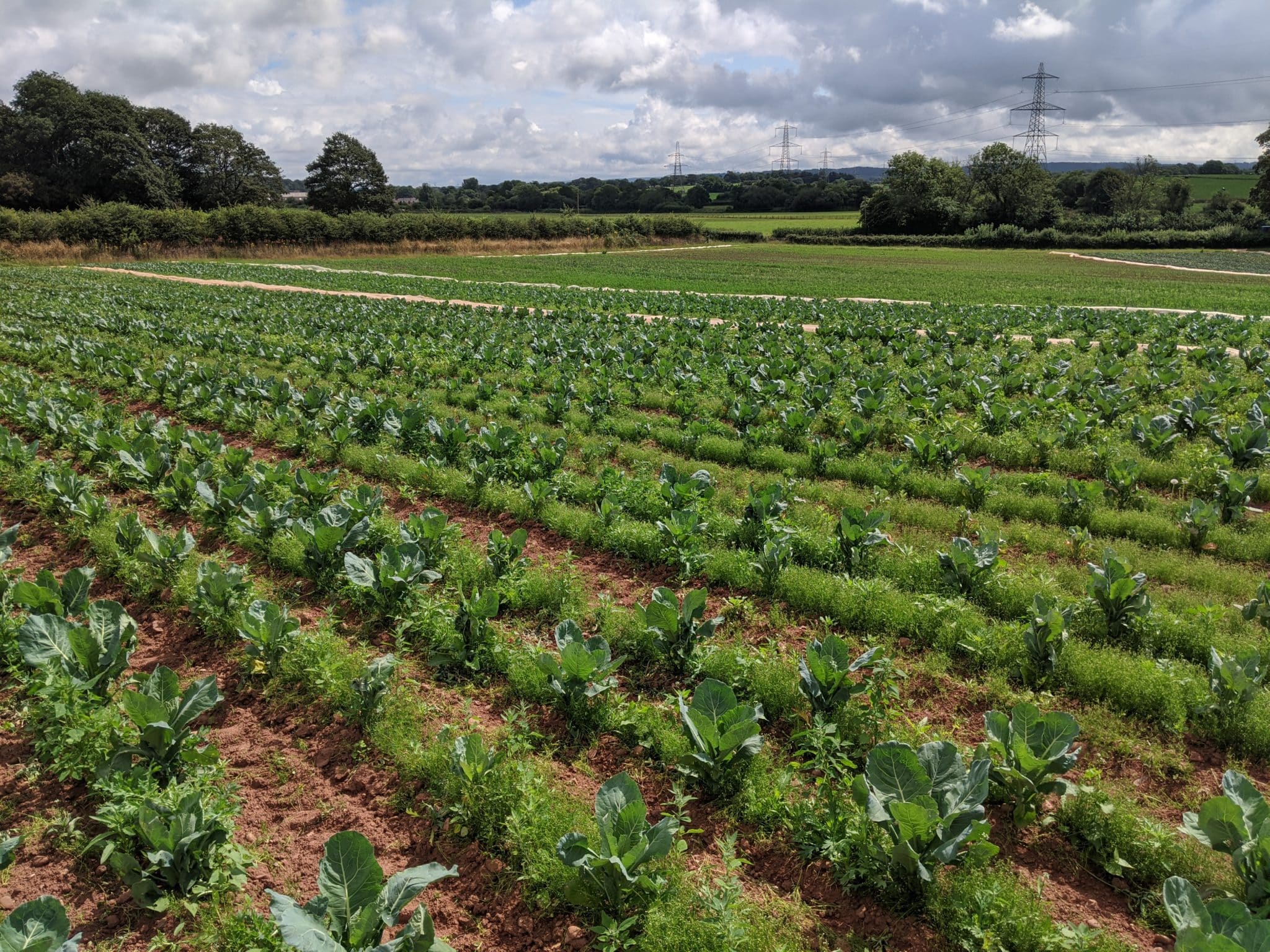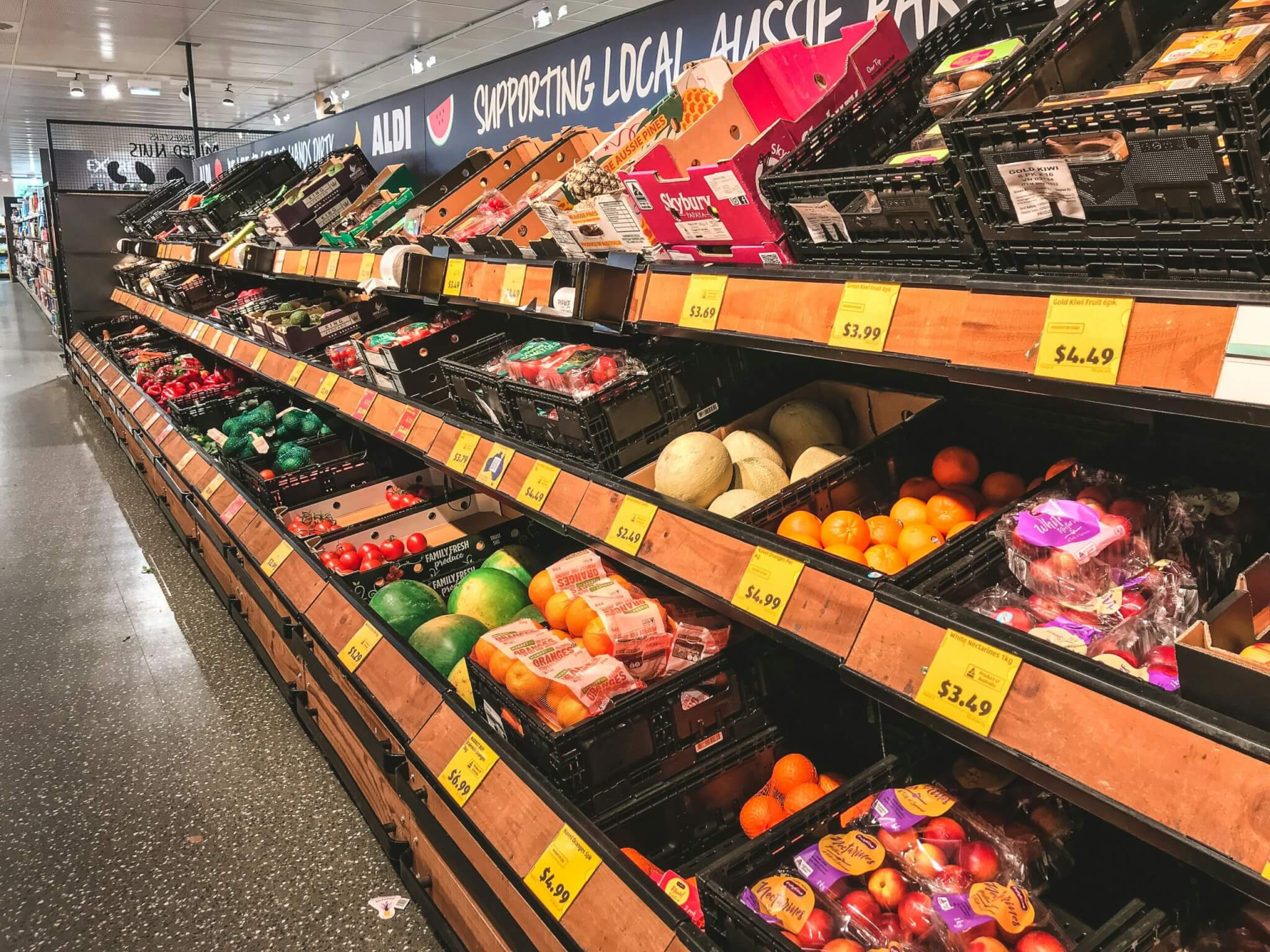Edible fruit and veg have been left to rot in fields after 40 per cent of farmers faced crop losses due to a lack of pickers, a new survey has found.
The survey of just under 200 fruit and veg growers across England and Wales, who between them employ 22,000 seasonal workers, found around £22 million worth of fruit and veg was wasted in the field directly due to worker shortages in the first half of 2022.
As the survey represents around a third of the UK horticulture sector, the NFU estimates the overall value of food wasted is more than £60 million.
It comes as a recent severe heat and drought has significantly affected the remaining harvest, and new season plantings, bringing fears of a tight supply into the autumn coinciding with a worsening cost-of-living crisis.
“It’s nothing short of a travesty that quality, nutritious food is being wasted at a time when families across the country are already struggling to make ends meet because of soaring living costs,” said NFU deputy president Tom Bradshaw.
“At the same time, the prolonged dry weather and record temperatures have created a really challenging growing environment for our fruit and veg. Every crop is valuable – to the farm business and to the people whose plates they fill. We simply can’t afford to be leaving food unpicked.”
The fruit and veg sector has struggled with a long-term lack of pickers, which was worsened by Brexit and end of free movement between the UK and Europe – the primary source of pickers.
Industry trade bodies, including the NFU, have been actively campaigning for an increase to visas allowed under the Seasonal Agricultural Workers Scheme, with growers reporting 14 per cent vacancies for this season. Over half (56 per cent) of farms said production had fallen, while 17 per cent of recruited workers did not turn up.
“This survey has demonstrated just how crucial it is for fruit and veg growers to have access to the workforce they need. Expanding the Seasonal Workers Scheme will play a vital role in enabling that access and ensuring we don’t see this devastating level of food waste next year,” said Bradshaw.
This year 38,000 visas were made available for the 2022 Seasonal Workers Scheme. The sector requires 70,000 workers, according to the NFU.
Since Brexit, the government has attempted to kickstart a national recruitment campaign for British pickers on fruit and veg farms but the scheme, Pick for Britain, was scrapped due to low take up.













An important article so thanks for highlighting the issues. There is link here to affordable and accessible housing in areas close enough to where the seasonal labour is needed. No one is going to commute hours everyday to work in a field. In general the agricultural landscape is devoid of people. We need to bring people back into these areas by having more progressive land use and housing laws and regulations.
Not to underestimate the problem but I wonder if you offered the general public to pick their own for a minimal cost it would mean much less waste 🤔 just a thought ..?
This is plain stupidity at its best. Anyone with a bit of education and common sense knows that Brexit was a lose-lose situation, and the situation of the pickers was dealt with the (fake) promise that unemployed locals would take back the (picking) jobs. Did they? Politics aside, can’t all this crop been offered to people for them to pickup and possibly have an honesty box so that at least the farmer get something for their hard work? It is not rocket science to think of such a simple solution to a big problem.
The solutions are not quite as simple as that unforuntately. These situations normally arise at the last minute in remote areas, with farmers doing everything in their power to pick their crop. I can imagine it’s challenging to rally local communities to pick what is often a single variety. If it were me, I might not be so inclined to drive pick up some onions, even if i were to share them among my neighbours, when they cost so little in the shop, especially when you consider the cost of fuel.
I do think there are things that communities could do; what about a task force set up by local people to help farms pick leftover veg in the evenings or spare time? I’m not sure if people want to do it as a job, but there’s a real will to help farmers in these challenging conditions. Could it be done?
A very interesting article, as usual in Wicked Leeks. Brexit cut the supply of cheap labour that farmers are used to for picking up their products. This is not a sustainable way of farming. Slaving in the fields should be banned. Working in the farm is an honest and very important job. As such, it should be properly paid. I know it is seasonal work but seasonal doesn’t mean cheap. Does Riverford have problems recruiting seasonal workers? I think they don’t. Well, show the world how you do it.
It’s a big problem with few answers at the moment. Although pay is definitely a factor, the problem isn’t just about money. A grower in Cornwall was offering up to £20 an hour to pick veg and it still didn’t help.
I’ve been a picker at Riverford. While the pay is ok, the working conditions are really good, and i think the reason they attract more UK workers than standard is the shared sense of purpose. I really got the impression that people thought there was a lot of value in what they were doing, and the heavily subsidised organic lunch helps sweeten the deal.
However, even Riverford depend on EU workers who return to work for the summer season every year, typically from Estonia, Latvia and Romania. If they stop coming over, they will also be in trouble.
Is it about dignity and the perception that farm work has in the UK? I think that has a role too. Interesting discussion on this in Guy’s recent video:
https://wickedleeks.riverford.co.uk/films/farming-a-labour-of-no-love/
I don’t know the answer but I wonder if the following act as barriers:
i) Decent temporary housing or lack of (preferably ‘free’ as part of the job)
ii) Rigidity of the benefits system. EG Can someone go and do seasonal harvesting & easily have their Universal Credit payment adjusted, restarted
iii) Can someone on benefits necessarily cope with the initial transport costs?
Child labour laws helped stop the practises of communities taking their summer break as hop-pickers for example – so child minding issues might be another barrier?
Recognition that the work is not unskilled – that’s down to all of us
Are there possibilities to restructure / mix up activities to help people develop the physical strength to cope?
Useful job experience? Tap into educational providers, Social prescribing
Some of these are not immediately “cheap” or quick to solve & involve more than 1 party. So expecting farmers to address the issue alone is not reasonable. Maybe a bit more patience, time & imagination and start-up capital is needed to fill the gap.
I think part time farm work is a good option, get muddy a couple of days of the week and contrast that with a different type of job or childcare?
It would be great if we actually tried to address these root causes because i feel like it could add a lot to rural communities and bring back some vibrancy to rural life. But I have a feeling that this requires a bit too much imagination for the gov and so I think they’ll just chuck visas at the problem.
Feedback (food waste charity) used to run a gleaning scheme for supermarket-rejected veg: Feedback employed organisers (sort of like a community group gangmaster), local volunteers picked and the produce went to, at the time, mostly homeless charities. Obviously a lot more people are in need of food now. I believe Feedback passed the scheme over to voluntary groups: there’s no longer one in my area.
But that’s not even the big problem: growers need income from their perfectly edible veg & fruit. I clearly remember the last time we had this crisis, before the Baltic states joined the EU in 2004. The demand for a highly flexible workforce that we couldn’t provide locally created a lucrative opportunity for some unscrupulous labour suppliers. We even had gangs from mainland China. I was disturbed to read this month (Guardian, 14 Aug) that Indonesian workers have been recruited … and once again charged extortionate broker fees in their home country which, together with visas and flights, gives them a hefty debt to start with.
Agree with Chivite that Brexit cut the supply of cheap labour and that farm work should be properly paid … and with Jack that pay isn’t the only or even the main problem. Flexibility is a huge problem: not many people can afford to be in work one day and not the next (when supermarkets alter and cancel orders at short notice): Riverford offering proper contracts for seasonal work is probably an exception? I don’t know, these days. But the cardoon in the room is cheap food and the supermarket monopoly of the fresh produce supply chain. Not easy to think about food prices these days when everything is so expensive. Solution? encourage/promote independents and lobby for living wage/income?
Jack – to my mind that has got to be one of the ways forward in this mess we are in! what is needed is some form of daily transport [get it if you either want extra cash, extra food, have a couple of days free and another hundred or so reasons] from this the “picker” gets a days wages [a reasonable amount of course] sensible hours including standard breaks within HSE Guidlines, decent facitities [again a legal requirment within HSE guidelines] and a percentage of the crop picked by each picker You turn up, do one days hard graft and get enough food for your family for most if not all of the week or you turn up, swan around doing minimal work get enough money for a few beers or a meal – the amount done is up to the ‘picker and the farmer’. Transport paid for by a local co-operative [who get paid by the farmers who take advantage of the scheme]. I’m sure there’s a lot of people out there who would like a day on the farm once a week and get something for it – plus of course the farmer gets his crops picked at what could be a reasonable rate – or not if he sits and does nothing – he could even find a few people who take to that style of work, after all tis a nothing ventured nothing gained situation.
However at jp_blitz [and those of that ilk] a whinge about BREXIT does nothing – it was voted for and maybe one day if given a chance will work out – if you don’t want to be part of the country and all it stands for I believe there are several “Rubber boats” lying ldle on Dover Beach, head south, I’m sure there are lots of French etc who would welcome you with open arms – again the choice is yours!